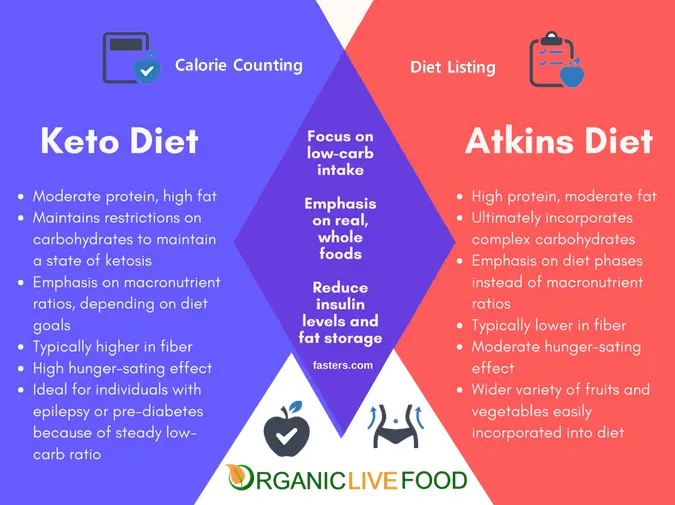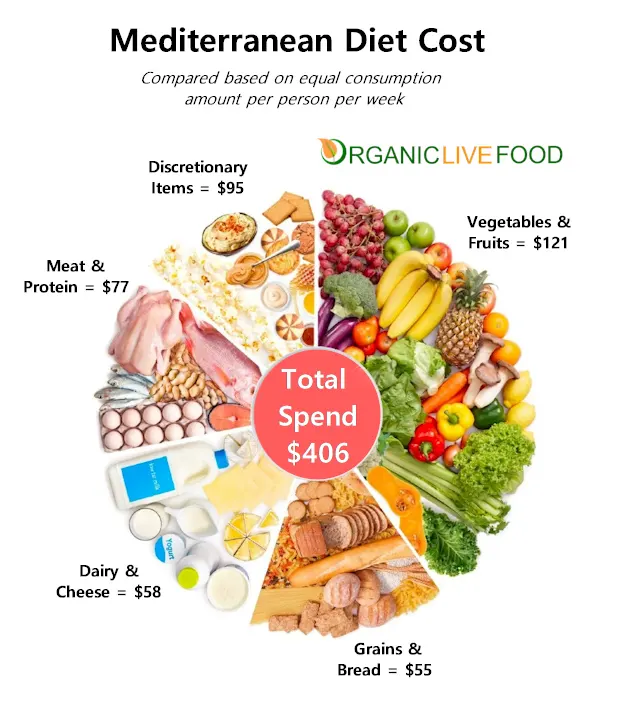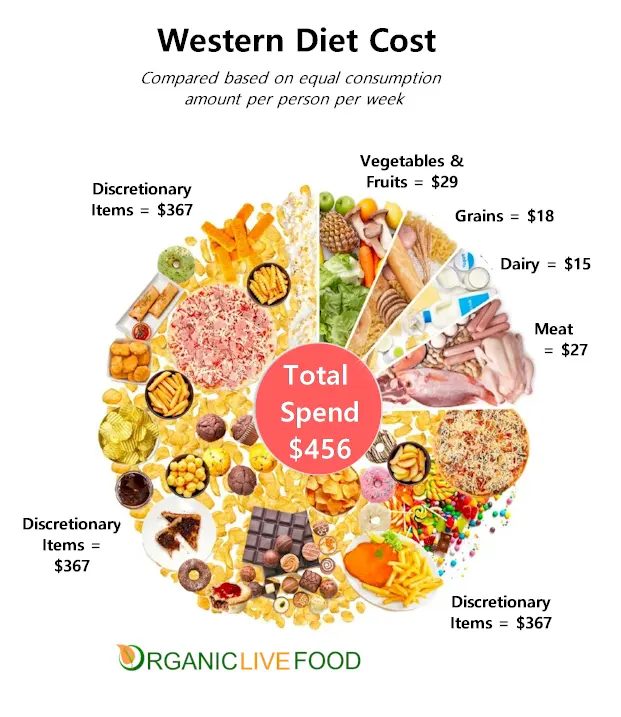You want to know how to lose weight fast or looking to shed those extra pounds quickly? Dive into our ultimate guide comparing the top diets for fast weight loss.
Explore the benefits, drawbacks, and effectiveness of popular diets like the Ketogenic (Kato), Mediterranean, Atkins, Paleo, Vegan, and more.
Let's discuss the perfect diet plan to achieve your weight loss goals.
In the constant pursuit of quick and effective weight loss, it's essential to navigate sensibly through diet options available. With this ultimate guide, we aim to provide a comprehensive comparison of the top diets for fast weight loss.
Each diet has its unique approach and benefits, and understanding them can help you make an informed decision about which one to choose based on your preferences and goals.
From the popular Ketogenic and Mediterranean diets to the Atkins, Paleo, and Vegan diets, we will explore the principles, advantages, and potential drawbacks of each.
By looking at these dieting options, you can uncover the perfect plan to kickstart your weight loss journey and achieve long-lasting results.
From all of us here at OrganicLiveFood.com Community, we wish speedy success, and joy, with the after-results.
Understanding the differences and principles behind each diet is essential in making an informed choice. Consider your personal preferences, health goals, and lifestyle factors when deciding which diet may work best for you. Remember, consult with a healthcare professional before starting any new diet or weight loss program.
When it comes to weight loss, there is an abundance of diet plans, strategies, ideas, opinions and contricdictory explanations and then you have to choose one. The toughest part though is how you are applyin git.
Each diet promises fast and effective results, but understanding the differences between them is crucial in finding the one that suits your needs and lifestyle. Even more important, some may be better suited for your body type and not all will achieve your fast weight loss goals.
The Atkins Diet, created by Dr. Robert C. Atkins, is a low-carb diet that aims to kickstart weight loss by restricting carbohydrate intake. This diet encourages the consumption of protein-rich foods like meat, fish, and eggs, while limiting foods high in carbohydrates such as bread, pasta, and sugar.
The Ketogenic Diet, often known as the Keto Diet, is a low-carb, high-fat diet that aims to put your body into a state of ketosis. Ketosis occurs when your body burns fat for fuel instead of carbohydrates.
By severely restricting carbohydrate intake and increasing fat consumption, the Keto Diet forces your body to rely on stored fat for energy. This diet has gained popularity due to its potential to promote rapid weight loss and improve overall health.

The Mediterranean Diet is inspired by the eating habits of people living in countries bordering the Mediterranean Sea, obviously.
This diet (or even you can call it, lifestyle) emphasizes the consumption of fruits, vegetables, whole grains, lean proteins, and healthy fats like olive oil.
With a focus on fresh, minimally processed foods, the Mediterranean Diet offers a balanced approach to weight loss and overall well-being.

The Paleo Diet, also known as the Caveman Diet, is based on the idea that we should may be eat like our Stone Age ancestors. The idea is to suggest that we evolved based on the best principles of a Paelo diet, some people refer to it as: 'famine to feast' diet, which repeats.
This diet focuses on consuming whole, unprocessed foods that would have been available to early humans, such as lean meats, fish, fruits, vegetables, nuts, and seeds. By avoiding processed foods, grains, dairy, and sugar, the Paleo Diet aims to improve overall health and promote weight loss.

The Vegan Diet is a plant-based diet that excludes all animal products. It emphasizes the consumption of fruits, vegetables, legumes, whole grains, nuts, and seeds, providing a variety of essential nutrients.
Due to its high fiber and low-calorie nature, the Vegan Diet can contribute to weight loss, but not as fast as other diets. Additionally, proper planning is essential to ensure all nutrient needs are met.
Carbohydrates |
Fats |
Proteins |
|
| Atkins | 5-10% |
20-30% |
60%+ |
| Ketogenic | <5% |
75-90% |
5-20% |
| Paleo | 20% |
40% |
40% |
| Mediterranean | 40% |
30% |
30% |
| Vegan | 50% |
30% |
20% |
Intermittent Fasting is more of an eating pattern than a traditional diet, as described in the list above.
It involves cycling between periods of fasting and eating to help the body lost fast through calorie containment. Popular methods include the 16/8 method (fasting for 16 hours and eating within an 8-hour window) or alternate-day fasting.
By restricting the eating window, Intermittent Fasting can help control calorie intake and promote weight loss.
When you drastically reduce your carbohydrate intake to about 20-50 grams per day, your body starts breaking down fat into molecules called ketones.
These ketones are then used as an alternative fuel source, providing energy for your body and brain. By restricting carbohydrates, your body becomes more efficient at burning fat, leading to rapid weight loss.
![]() Fast Weight Loss: The body is triggered to promote rapid weight loss.
Fast Weight Loss: The body is triggered to promote rapid weight loss.
By shifting your body's energy source from carbohydrates to fat, you can effectively burn stored fat and shed pounds quickly.
![]() Reduced Appetite: People experience reduced hunger and cravings.
Reduced Appetite: People experience reduced hunger and cravings.
The high-fat content and adequate protein intake keep you feeling satisfied and full for longer periods, making it easier to stick to your weight loss goals.
![]() Improved Mental Focus: Efficient source of energy for the brain than glucose.
Improved Mental Focus: Efficient source of energy for the brain than glucose.
This method offers a more efficient source of energy for the brain compared to glucose.Many individuals on the Keto Diet report increased mental clarity, focus, and improved cognitive function.
![]() Stabilized Blood Sugar: Particularly ideal for diabetes suppression.
Stabilized Blood Sugar: Particularly ideal for diabetes suppression.
By limiting carbohydrate intake, the Keto Diet helps regulate blood sugar levels. This is particularly beneficial for individuals with diabetes or insulin sensitivity.
![]() Keto Flu: Experiencing energy loss and feeling fatigued.
Keto Flu: Experiencing energy loss and feeling fatigued.
When transitioning to the Ketogenic Diet, some individuals experience temporary side effects known as the "Keto Flu." These may include fatigue, dizziness, irritability, and brain fog. However, these symptoms typically subside within a few days to a week.
![]() Restrictive Nature: Limitations in how easily one can adhere to the diet.
Restrictive Nature: Limitations in how easily one can adhere to the diet.
The Keto Diet requires strict adherence to limit carbohydrate intake, which can be challenging for some individuals. It may require significant changes in the way you eat and meal preparation.
![]() Potential Nutrient Deficiencies: Must be careful not to cause nutrient deficiencies.
Potential Nutrient Deficiencies: Must be careful not to cause nutrient deficiencies.
Eliminating certain food groups, such as fruits and whole grains, can lead to potential nutrient deficiencies if not properly managed. It's crucial to incorporate nutrient-dense foods and consider supplements when following the Ketogenic Diet.
The Keto Diet can be an effective approach for fast weight loss, but it may not be suitable for everyone. It's essential to consult with a healthcare professional or a registered dietitian before starting any new diet plan, especially if you have pre-existing health conditions or are taking medications.
Remember, achieving sustainable weight loss is not just about following a specific diet but also incorporating regular physical activity and making long-term lifestyle changes. In fact, these all work together, that is how you lose weight and feel good and become healthy.
The Atkins Diet is a low-carbohydrate diet that focuses on consuming high amounts of protein and fats while limiting the intake of carbohydrates. The main idea is to promote fast weight loss without counting calories or feeling deprived.
This works by shifting the body's metabolism from relying on carbohydrates for energy to burning stored fat. It consists of four phases:
![]() Induction Phase. To kick-start metabolic trigger.
Induction Phase. To kick-start metabolic trigger.
This initial phase limits carbohydrate intake to 20 grams per day, primarily from low-carb vegetables. The objective is to kick-start ketosis, a metabolic state where the body begins to burn fat for energy.
![]() Balancing Phase: Conditioning the carb tolerance levels.
Balancing Phase: Conditioning the carb tolerance levels.
During this phase, more low-carb vegetables, nuts, and small amounts of fruits are gradually reintroduced into the diet. The goal is to determine the individual's carbohydrate tolerance while continuing to lose weight.
![]() Fine-Tuning Phase: In this phase, individuals approach their weight loss goal.
Fine-Tuning Phase: In this phase, individuals approach their weight loss goal.
This is where each person gets to the level of ideal metabolic conditioning and expand their food choices while maintaining a healthy carbohydrate intake level. They find the perfect balance of foods that support weight maintenance without triggering weight gain.
![]() Maintenance Phase: Graduation phase.
Maintenance Phase: Graduation phase.
The final phase focuses on maintaining the achieved weight loss by adopting a sustainable eating pattern. Carbohydrate intake is increased further, but still, maintain a healthy balance to prevent weight regain.
The Atkins Diet has been found to offer several benefits for fast weight loss:
![]() Rapid Weight Loss.
Rapid Weight Loss.
By limiting carbohydrate intake, the body begins to burn stored fat for fuel, leading to significant and quick weight loss results.
![]() Appetite Control.
Appetite Control.
High-protein, high-fat foods help to keep you feeling fuller for longer periods, reducing cravings and snacking between meals.
![]() Improves Metabolic Health.
Improves Metabolic Health.
The Atkins Diet can lead to improvements in blood sugar levels, insulin sensitivity, and cholesterol levels.
![]() Increased Energy.
Increased Energy.
As the body adapts to burning fat for energy, many individuals report increased energy levels throughout the day.
![]() Flexibility.
Flexibility.
With a wide range of food options available, the Atkins Diet offers flexibility in meal planning, making it easier to adhere to in the long term.
While the Atkins Diet can yield excellent results for fast weight loss, it is essential to consider some potential drawbacks:
![]() Initial Side Effects.
Initial Side Effects.
Some individuals may experience side effects during the induction phase, such as headache, fatigue, and constipation. These symptoms usually subside as the body adjusts.
![]() Restricted Food Choices.
Restricted Food Choices.
The diet restricts high-carbohydrate foods such as grains, starchy vegetables, and fruits, which may limit the variety of foods in your diet.
![]() Lack of Long-Term Evidence.
Lack of Long-Term Evidence.
Although short-term studies show promising results, limited research exists on the long-term effects and sustainability of the Atkins Diet.
![]() Potential Nutrient Deficiencies.
Potential Nutrient Deficiencies.
Restricting certain food groups might result in inadequate intake of essential vitamins, minerals, and fiber. Supplementation and careful meal planning are necessary to ensure nutritional adequacy.
The Atkins Diet can be effective for fast weight loss, particularly for individuals who prefer low-carbohydrate diets and have no contraindications related to medical conditions.
However, it is essential to consult with a healthcare professional or a registered dietitian before starting any significant dietary changes to ensure it is suitable for your individual needs and goals.
Successful weight loss and long-term health require not just the right diet but also regular physical activity, balanced nutrition, and a sustainable lifestyle approach while you steer clear of sugar-containing sodas and fruit drinks, or refined sugars found in candy, cookies, and cakes.